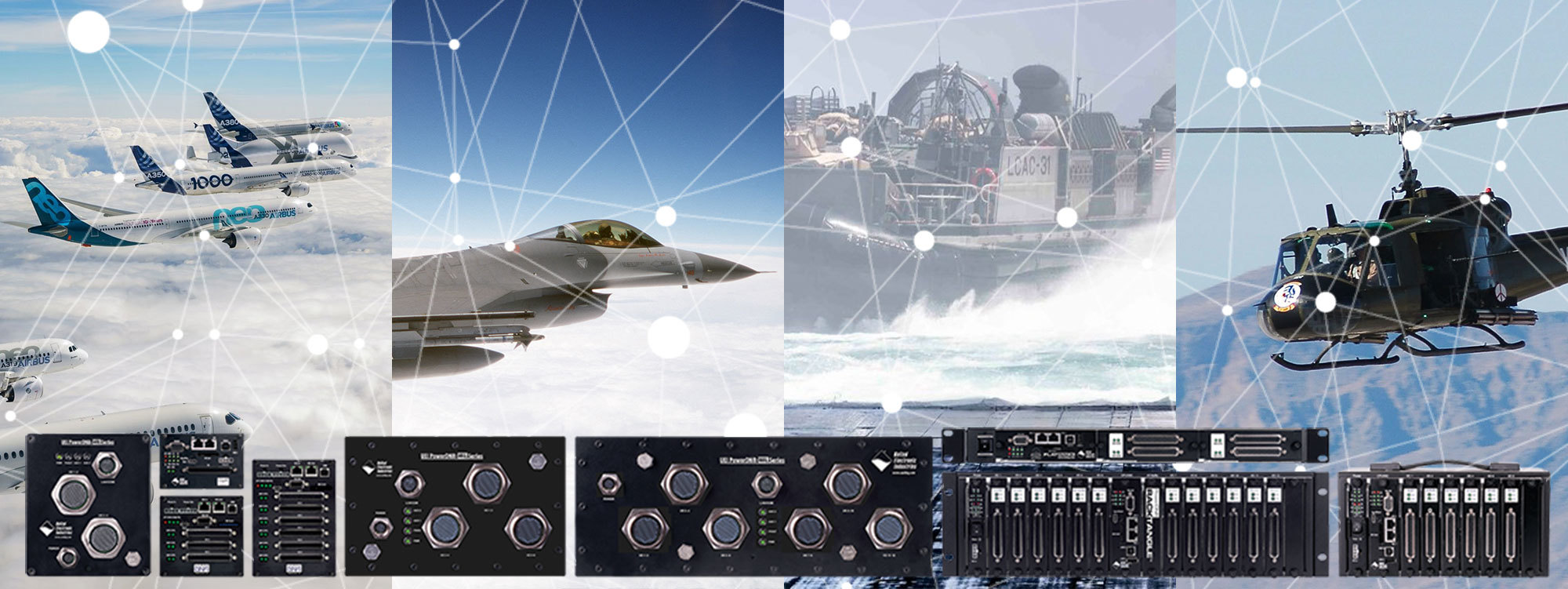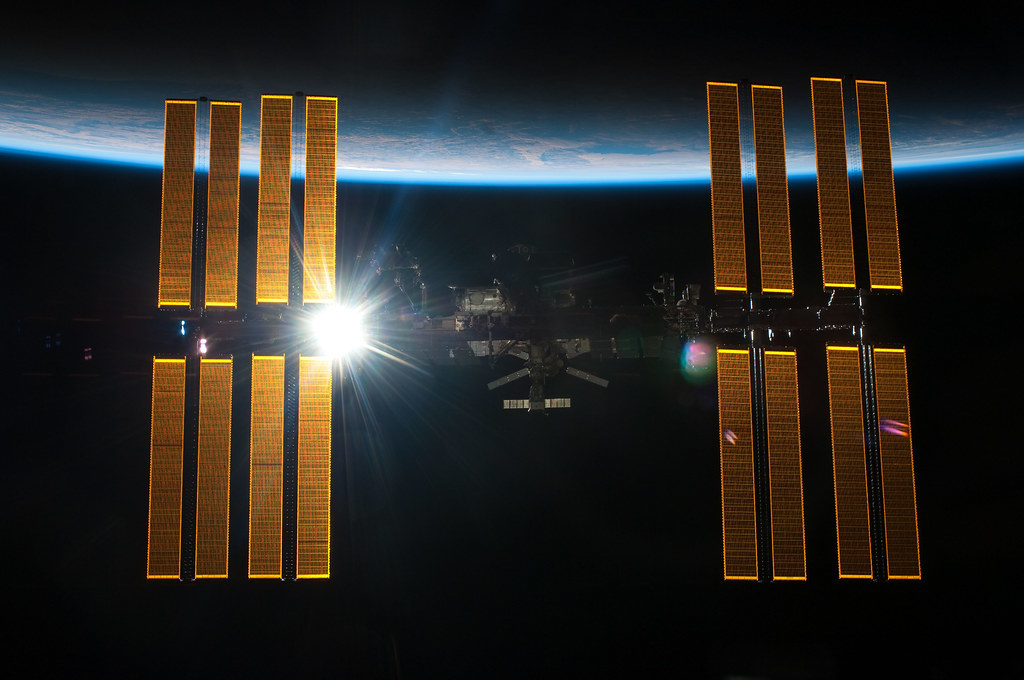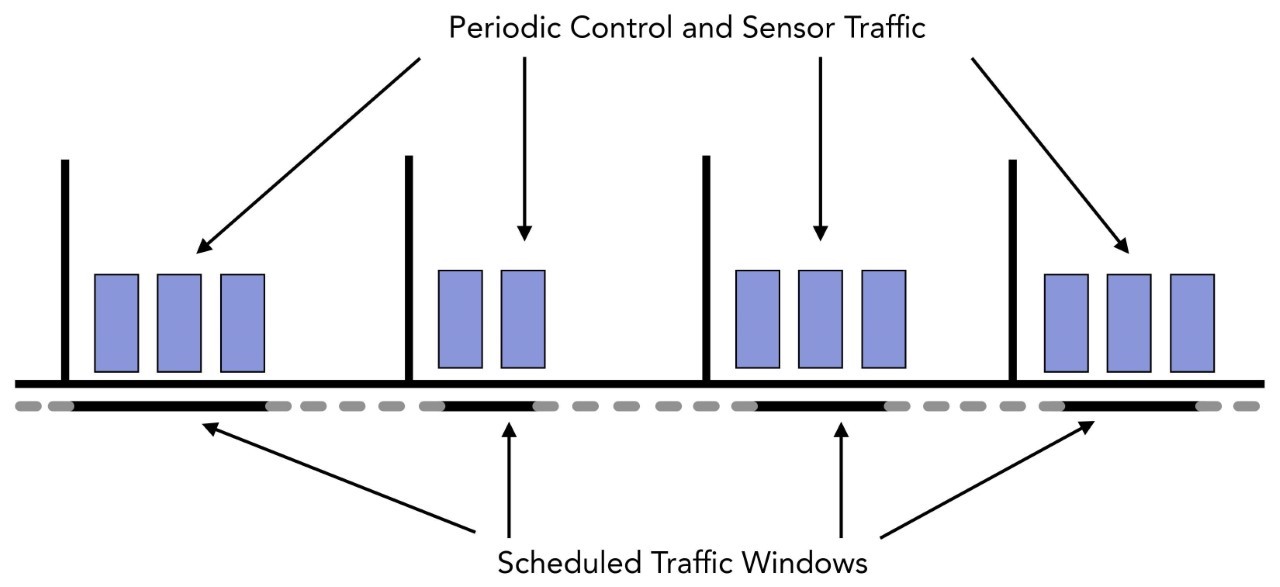Get in Touch
General
(508) 921-4600
Email Sales
Email Support
UEI Europe Office
+49 40 63698136
Email EU Sales
Visit this page for local offices and distributors.
Time Sensitive Networking (TSN)
Tutorial and Reference Guide

Quick Links: What is TSN? | Aerospace and Defense | Industry Applications | UEI Compatibility & Solutions
What is TSN?
Time Sensitive Networking is IEEE 802.1Q - a defined standard technology providing deterministic messaging on Ethernet. TSN safety-critical control networks accept inputs from sensors, perform control loop processing, initiate actions, and implement packet and link redundancy with varying levels of timing sensitivity and priority.
TSN is a Layer 2 technology based on the Time-Aware Shaper mechanism to separate and categorize Ethernet communication based on repetitive cycles of fixed duration. These cycles are configured and divided into temporary windows through nodes that compose the network. This establishes three types of traffic, known as scheduled, best effort, and reserved traffic which can be separated based upon strict real-time requirements, priority type, and need for Quality of Service (QoS) functionalities.
TSN technology is based around the following standards:
| Standard | Title |
|---|---|
| IEEE 802.1AS-Rev | Timing and Synchronization for Time-Sensitive Applications |
| IEEE 802.Qav | Forwarding and Queuing Enhancements for Time-Sensitive Streams |
| IEEE 802.1Qbv | Enhancements for Scheduled Traffic |
| IEEE 802.1Qbu & 802.3br | Frame preemption |
| IEEE 802.1Qca | Path Control and Reservation |
| IEEE 802.1Qcc | Stream Reservation Protocol (SRP) Enhancements and Performance Improvements |
| IEEE 802.1Qci | Per-Stream Filtering and Policing |
| IEEE 802.1cb | Frame Replication and Elimination for Reliability |
TSN for Aerospace and Defense

TSN provides a more cost-efficient, user-oriented, and adaptable solution using COTS and Ethernet technology that addresses aerospace and defense needs for rugged, reliable, interoperable, and determinism with high bandwidth capability.
TSN vs MIL-STD-1553
MIL-STD-1553B (MILBUS) is a military network system standard with a data rate of 1Mbps. Although this avionics system is regarded for being safe, strong, and reliable, it is considered outdated for modern defensive aircraft. Thanks to TSN, Ethernet technology is now deterministic enough to replace MIL-STD-1533B. TSN can be introduced for real-time and safety-critical mission systems, sensor fusion, and image processing. TSN technology is also a more lightweight solution, yet still upholds the reliability and ruggedness demanded for military applications.
TSN vs Alternatives
Some current alternatives to TSN technology include TTEthernet, SpaceFibre, and SpaceWire. These systems are vendor lock-in, meaning they lack interoperability and flexibility with user software and are far more costly systems to implement.
Industry Applications

Micro Launchers
TSN is being implemented for micro launcher technology for small and nanosatellites for commercial and scientific organizations. TSN’s deterministic latency, tight synchronization, reliability, interoperability, and reusability are key for micro launchers. The IEEE 802 Ethernet technology has lower implementation costs and provides greater flexibility for user software.
Military Vehicle Platforms
The NATO Generic Vehicle Architecture (NGVA) is a shared and standardized military platform that requires continuous real-time data access in challenging terrain and environments. TSN, in conjunction with Data Distribution Service (DDS) technology, provides a communication network with a strong performance that enforces real-time Quality of Service (QoS) for critical traffic flows.
NGVA has real-time video streaming capability, and the QoS requirements mean that TSN is suited perfectly for this tech. The stream is categorized as reserved traffic, as a portion of data bandwidth is reserved for the latency-controlled video.
NVGA also utilizes TSN for its braking system. This is categorized as scheduled traffic, as messages to and from the brakes, ABS system, brake linings, brake fluids, and engine brake are of utmost importance. TSN reliability ensures that messages are received in even the most difficult communication situations

DETERMINISTIC TSN SOLUTIONS FROM UEI
Determinism doesn't mean super-fast (throughput), but it does mean being definitely and unequivocally characterized. A deterministic model grants the ability to generate the same output from a given starting condition or initial state which produces lower latency and lower/defined jitter for higher bandwidth.

The accurate timing for the transmission of scheduled Ethernet Frames requires dedicated circuitry like FPGAs such as the Zynq® UltraScale+™.
In industries that handle large amounts of big data from various devices, high data communication traffic can be a threat to real-time critical projects. Integration of TSN protocols into these systems ensures low latency for tasks such as synchronized measurements and embedded coordinated data logging. TSN provides scalability for any high-traffic system and protects your data communication systems for years to come.
TSN COMPATIBILITY WITH UEI EMBEDDED SYSTEMS
Read about the UEI & RTI TSN Solution
ZYNQ PROCESSOR (-33/-3A CPU Options)
Zynq UltraScale+ will support 802.1Qbv, 802.1bu/802.3br, 802.1AS, 802.1Q, 802.1Qav, 802.1CB
(this is an end-node, no switch inside)- 10x the processing power of UEI’s prior CPU
- 100x real-time performance increase via FPGA
- 3 GigE Ethernet ports, supports IEEE-1588
- Quad-core ARM cortex- A53, 64-bit processor combined with a user programmable Xilinx FPGA
- 4 GByte, 64-bit DDR, 8GBtye FLASH
- Full HD Video output
- M.2 slot for NVMe SS drives up to 512 GB
SOLOX/ARM PROCESSOR (-11/-12 CPU Options)
SoloX/ARM I.MX6 will support 802.1Qav, 802.1Qbv, 802.1AS, 802.1Q, 802.1Qci
(there is a switch inside)- Local storage on solid-state hard drive or SD Card
- Optional HDMI interface
- High processing power & memory
- 2 Independent 10/100/1000Base-T Ethernet ports
- USB 2.0
Learn more about UEI TSN Capabilities UEI Embedded Systems
UEI COTS Guarantees to Avoid Obsolescence
Protecting you from obsolescence is a priority! UEI's COTS Guarantees are our promise to you. By guaranteeing the availability of all chassis and I/O products for 10 years from your purchase date, we make it easy for you to acquire replacement parts and maximize supply chain reliability.

10 Year Availability Guarantee
UEI guarantees the availability of all chassis & I/O products for a minimum of 10 years from purchase. Unless you are notified at the time of purchase, all chassis & I/O products will be available for repurchase for at least 10 years.

3-5 Year Hardware Warranty -- Upgradeable to 10 Years!
UEI is so confident in the reliability and dependability of our hardware that we offer a standard warranty to 3 years. Extending the warranty to 10 years is easy based on our low return rate (<0.3%).
